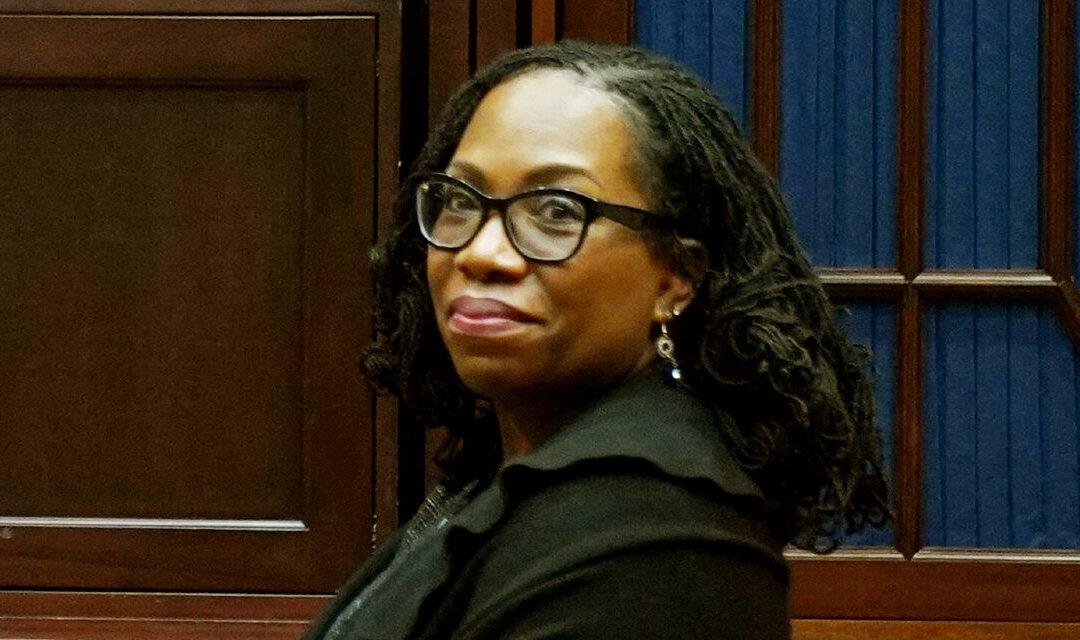The U.S. Senate on April 7 voted to confirm Judge Ketanji Brown Jackson to the Supreme Court, capping weeks of tough scrutiny and heated debates over the nominee’s qualifications.
The 53–47 vote, presided over by Vice President Kamala Harris, included the support of all 50 Democrats and three Republicans—Sens. Mitt Romney (R-Utah), Lisa Murkowski (R-Alaska), and Susan Collins (R-Maine).





